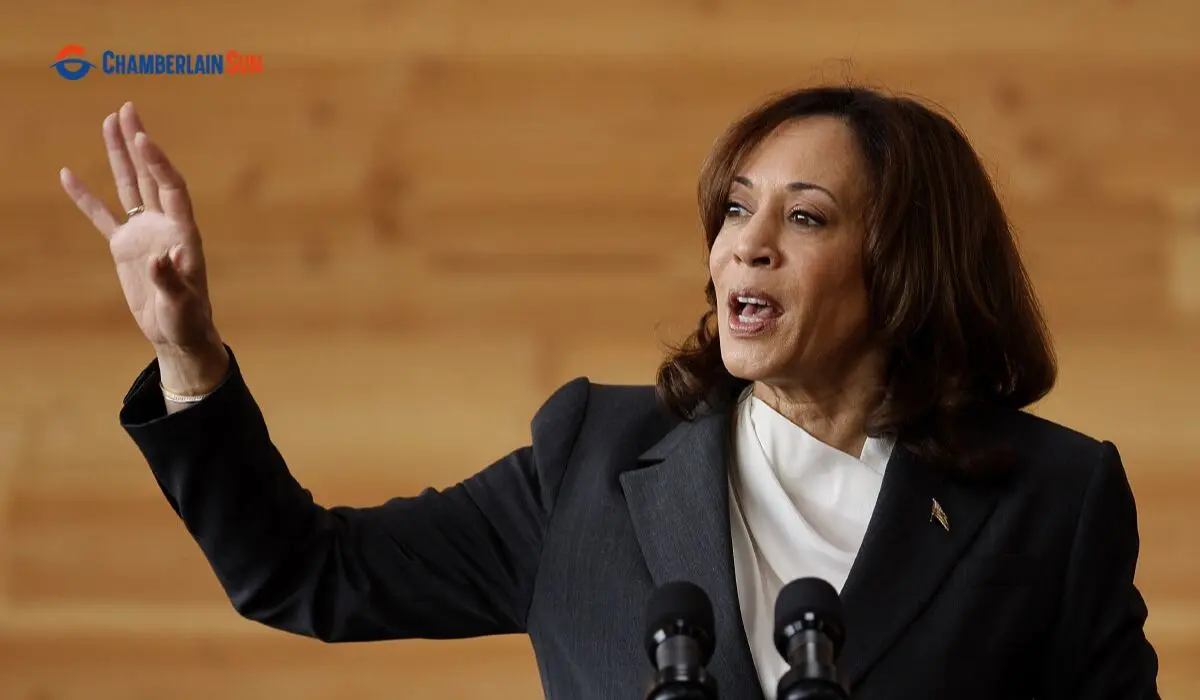In a significant move to bolster the U.S. economy and support small businesses, Vice President Kamala Harris is set to propose a tax deduction of up to $50,000 for new small businesses. This tenfold increase from the current $5,000 deduction is part of her broader economic policy agenda aimed at winning over middle-class Americans.
Harris’s proposal not only highlights her commitment to small business owners but also sets the stage for a sharp contrast with her Republican opponent, Donald Trump, particularly on economic strategy concerning tariffs and taxes. As Harris gears up for the presidential race, her progressive economic plans focus on increased taxation for wealthier individuals and corporations, coupled with enhanced federal funding for essential social programs such as child care.
Key Guidelines
- Scope of the Tax Deduction: Harris proposes increasing the startup expense deduction for new small businesses from $5,000 to $50,000, a significant leap intended to ease the financial burden on entrepreneurs.
- Economic Context: The proposal aims to support the roughly 33 million small businesses in the U.S., which employ about 46% of all private sector workers and have been pivotal in job creation since 2019.
- Broad Economic Strategy: Harris’s plan is a part of a more extensive economic agenda that includes tax reforms targeting wealthier individuals and corporations, and increased funding for social programs aimed at supporting working parents.
- Challenges and Opposition: The proposal is expected to face resistance from both corporations and Congress, with previous similar proposals from President Joe Biden having been rejected.
- Potential Impact: Harris’s proposal could significantly influence small business growth, but concerns remain about its potential effects on inflation and the broader economy.
Harris’s Economic Vision: Supporting Small Businesses

Harris’s plan is a clear attempt to provide substantial financial relief to small business owners. The proposed $50,000 tax deduction reflects her understanding of the high costs associated with starting a new business in the U.S. According to the Small Business Administration, the average cost of launching a new business is around $40,000. By increasing the deduction to $50,000, Harris aims to make it more feasible for entrepreneurs to navigate the initial financial hurdles, thus encouraging more small business formations.
This proposal is part of a broader strategy to stimulate economic growth by supporting the small business sector, which is a critical driver of job creation in the U.S. Since 2019, small businesses have been responsible for 70% of net new jobs, highlighting their importance to the economy. By offering a larger deduction, Harris hopes to further fuel this job creation engine.
The Broader Economic Context
Harris’s tax proposal does not exist in a vacuum. It is part of her progressive economic agenda that contrasts sharply with the policies advocated by Donald Trump and the Republican Party. While Trump has focused on reducing taxes and tariffs to stimulate economic growth, Harris’s plan involves increasing taxes on wealthier individuals and corporations to fund social programs that benefit middle-class and working-class Americans.
Her agenda includes federal funding for child care and other programs designed to support working parents, reflecting her commitment to addressing income inequality and providing opportunities for economic mobility. This approach is likely to resonate with voters who are concerned about the rising cost of living and the challenges faced by working families.
However, Harris’s proposal is expected to face significant opposition, particularly from corporations and Congress. Previous efforts by the Biden administration to implement similar tax reforms were met with resistance, and it is likely that Harris’s plans will encounter similar challenges. Critics, including Trump economic advisers Kevin Hassett and Stephen Moore, argue that such proposals could exacerbate inflation and harm the economy.
Potential Impact On Small Businesses
If implemented, Harris’s proposal could have a profound impact on small businesses across the country. The increase in the startup expense deduction would provide much-needed financial relief to entrepreneurs, potentially leading to a surge in new business formations. This, in turn, could boost job creation and contribute to overall economic growth.
The proposal also includes provisions for a standardized tax deduction for small businesses and measures to simplify the process of obtaining occupational licenses. Additionally, Harris plans to establish a small business expansion fund to help community banks cover interest costs, further supporting the growth of small enterprises.
However, the potential risks associated with the proposal cannot be ignored. Critics argue that the increased tax burden on wealthier individuals and corporations could stifle investment and lead to slower economic growth. Additionally, there are concerns that the proposal could contribute to rising inflation, which has already been a significant issue during the Biden administration.
Harris’s Vision For Small Business Growth
As part of her broader economic strategy, Harris has set an ambitious goal of 25 million new small business applications during her first term if elected. This target exceeds the 19 million new small business applications recorded under Biden since he took office in January 2021. Achieving this goal would require significant policy support and could be a major driver of economic growth.
In her first major speech focused on the economy as the Democratic presidential nominee, Harris emphasized her commitment to cutting taxes for most Americans, combating price gouging by grocers, and expanding affordable housing. Her focus on small businesses is a key element of this agenda, reflecting her belief that supporting entrepreneurs is crucial for building a stronger, more equitable economy.
Kamala Harris’s proposal to increase the startup expense deduction for new small businesses to $50,000 is a bold move aimed at supporting entrepreneurs and boosting economic growth. While the proposal has the potential to significantly impact small business formation and job creation, it also faces significant challenges, including opposition from corporations and concerns about its impact on inflation.
As Harris continues to build her economic platform, her focus on small businesses underscores her commitment to creating opportunities for all Americans, particularly those in the middle class.

